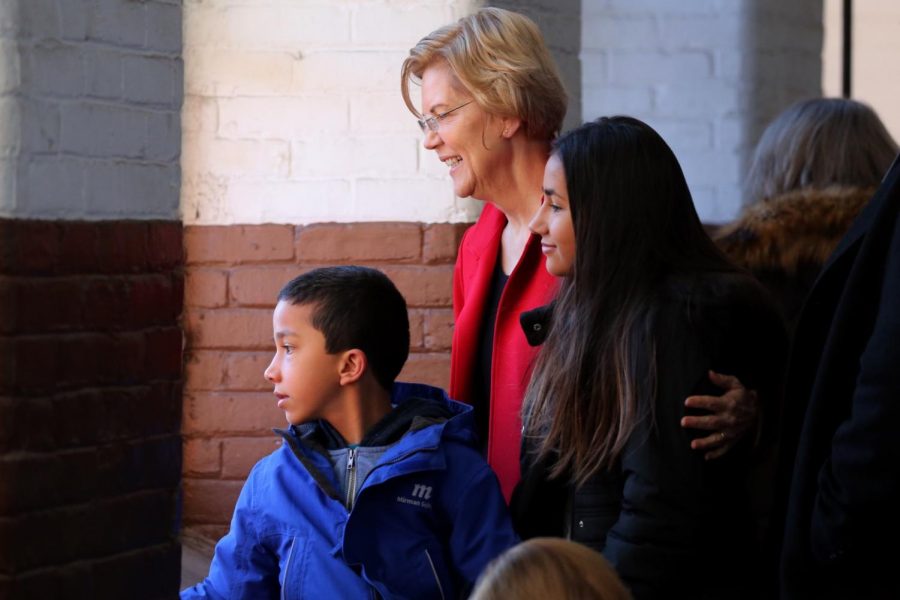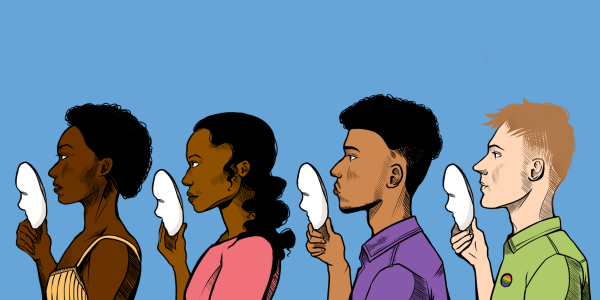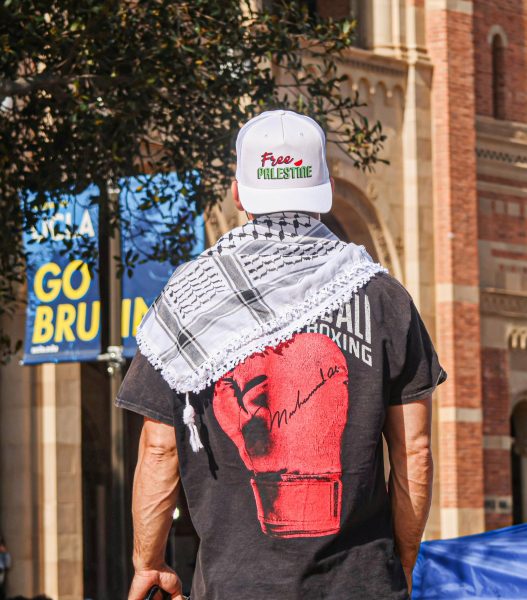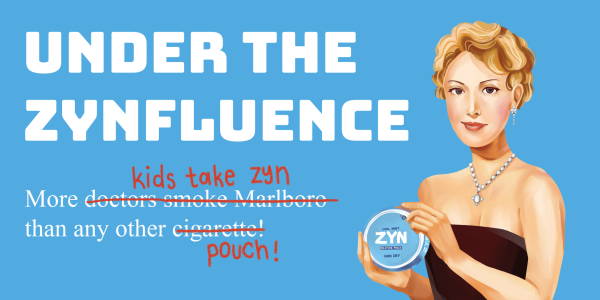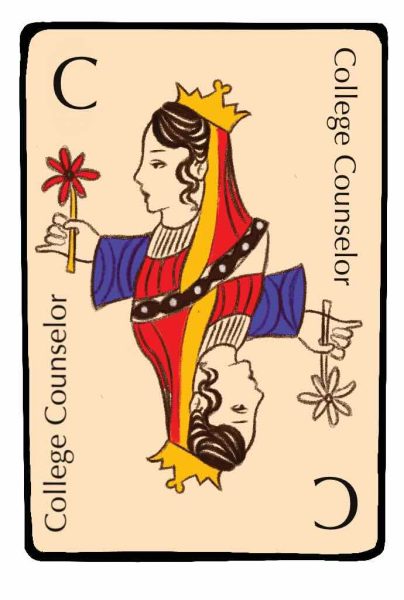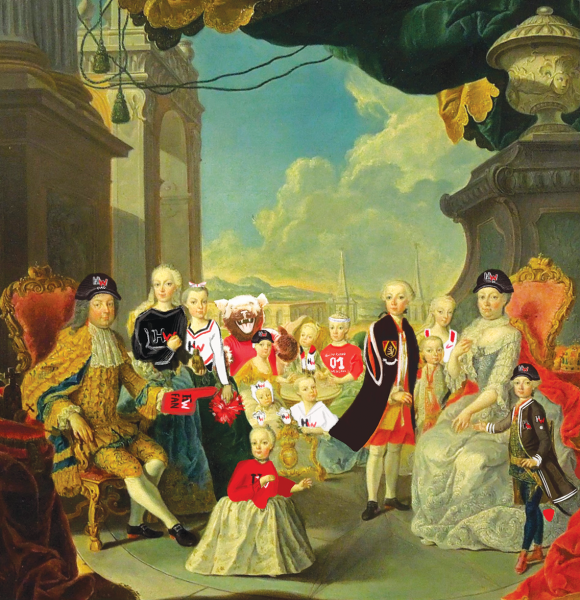Diplomacy at the dinner table
Political families discuss how ideological differences have affected familial relations.
Printed with permission of Lavinia Tyagi '23
(From left to right) Atticus Tyagi, Senator Elizabeth Warren and Lavinia Tyagi ’23 embrace with a smile as they pose for a photo.
March 24, 2021
It’s half past six on a Wednesday. A family of five places plates on a table, grabbing cups, silverware and helpings of shepherd’s pie. It smells like home, and it looks like any other family eating any other meal in any other place in the United States. It’s not. At the end of the table, the family’s middle child, Lavinia Tyagi ’23, has become a champion. Her older sister laughs and checks the younger’s 14th win in the GamePigeon mobile game Anagrams. Tyagi sends a kissy Bitmoji, promising her grandmother that she’ll go easy on her when they play after dinner. 3000 miles away, US Senator Elizabeth Warren puts down her phone with a laugh.
Tyagi said she is grateful for her close relationship with her ‘Gammy,’ and that her public role as a political figure never hindered her ability to be a loving grandmother. In fact, Warren’s work as a Senator has led her grandchildren to stay up to date on news.
“With the help of my grandma’s immersion in politics, my political evolution was able to begin at a fairly informed starting point from a young age,” Tyagi said. “I was grateful to be able to involve myself in political happenings and witness discussions up close because it taught me how difficult it is to implement substantial change.”
Tyagi has introduced her grandmother at town halls, attended presidential debates and has spoken to national and local news outlets before. Warren makes a great teacher and grandmother, but Tyagi said that she hopes young people, regardless of their political connections, remain passionate about what they want to see in the world.
“Just one individual in the Senate pushing and campaigning for programs and reform wasn’t enough, which is painful to see as a kid, as I believed my grandma’s strength to be an unstoppable force,” she said. “Despite some of these aspects of working in U.S. politics making her work difficult, she has always remained resilient, and I admire her for that.”
Tyagi said her experience with both politics, her family and their intersection has been positive, akin to that of Marlborough School student Helena Hudlin ’23. As the niece of Vice President Kamala Harris, Hudlin is a political and social activist in her community. She has introduced her aunt at rallies and attended the inauguration of President Joe Biden.
“As you can imagine, I am so, so proud of my godmother,” Hudlin said. “She’s my MVP.”
As the son of Dee Dee Myers, the first woman and second-youngest White House Press Secretary, Stephen Purdum ’22 said that he feels pride on behalf of his family, despite politics having only played a causal role in his home. He said he gained gradual exposure from overheard conversations and breakfast table small talk. Myers served under Bill Clinton at age 31, hosted “Equal Time” on CNBC, won Celebrity “Jeopardy” and wrote The New York Times bestselling novel “Why Women Should Rule the World” in 2009. Her intellect, Purdum said, teaches him to analyze information critically and be more aware of the laws that form our society.
“Having my parents be so involved in politics exposed me to political issues much earlier than I probably otherwise would have,” Purdum said. “Because it was just what was always talked about in my house, I learned a lot more than I would have left to my own devices. I think it made me consider political issues for most of my life. As a result of that, I’ve always been interested in and concerned about politics, and far more politically active, and I think that does come as a direct result of my parents.”
Both politics and family dynamics fall on a spectrum, and the point in which they meet is sometimes bound to be messy. Notre Dame High School student Lillie Bush ’23 has become an expert at navigating these moments. She said that, like a delicious Thanksgiving meal, sometimes the best option is to appreciate what’s good and ignore the political debates circling the table.
Every summer, her family of five travels to Walker’s Point Estate in Maine. The Kennebunkport residence, otherwise known as the “Bush Compound,” boasts nine bedrooms, four sitting rooms and at least 10 different political viewpoints. Former President George H.W. Bush’s six children have given her plenty of cousins with whom to roam the island. However, as a seasoned Lincoln-Douglas debater and self-proclaimed oversharer, Bush said she struggles to enjoy the New England utopia without a few flare ups.
“I just remember a dinner at Kennebunkport watching my father and his brother talk about business,” Bush said. “I was in seventh grade and hadn’t formed any big political opinions, but something about the way they were willing to put money over human rights felt wrong. I remember the line, ‘we can’t fix these things without the money to do so,’ and something just scared me about how that money was going to be made.”
After that moment, Bush decided to reflect upon what felt so off about that interaction. Bush said she still loves and admires her family and that she would always be open to discussing differences in their beliefs.
“I respect them, but there’s so many things I can’t talk about anymore,” Bush said with a sigh. “I was surprised to have lost a lot of respect from my family just from them knowing I’m left-leaning. I told my dad I wanted to vote as a Democrat, and he threatened to disown me. When I started getting visibly upset, he said it was a joke. And honestly, I bet it was. I just still think that, especially as a kid, you shouldn’t get threatened by your parents for having independent beliefs.”
Two years later, Bush entered a varsity debate lesson for help formatting evidence for an upcoming tournament. She said that, upon entering the classroom, her goal of citations and sourcing was eclipsed by a much more intriguing aspect of the course: politics. Seniors in navy and khaki were bent over excerpts of “The Communist Manifesto” and “Das Kapital.” A freshman looking to rise the ranks of high school debate, Bush read up on Marxism to prepare for what was to come.
“I wanted to be ahead of the curve,” Bush said. “I knew we’d have to read Karl Marx eventually, so I just ordered every book of his I could find. I was surprised. Everything he said just clicked with me.”
Now a Marxist Anarcho-Communist, Bush still sets sail, swims and spends summer nights with her family under a Republican legacy. From her childhood to that night in the compound to now, Bush said she was able to learn about politics through three different phases: watching, listening and learning for herself.
“In being surrounded by politics from a young age, I learned early-on that political ideology is everyone’s independent journey,” Bush said. “Family doesn’t and shouldn’t shape your stance. It is up to you and you alone to research and support what you believe.”
































